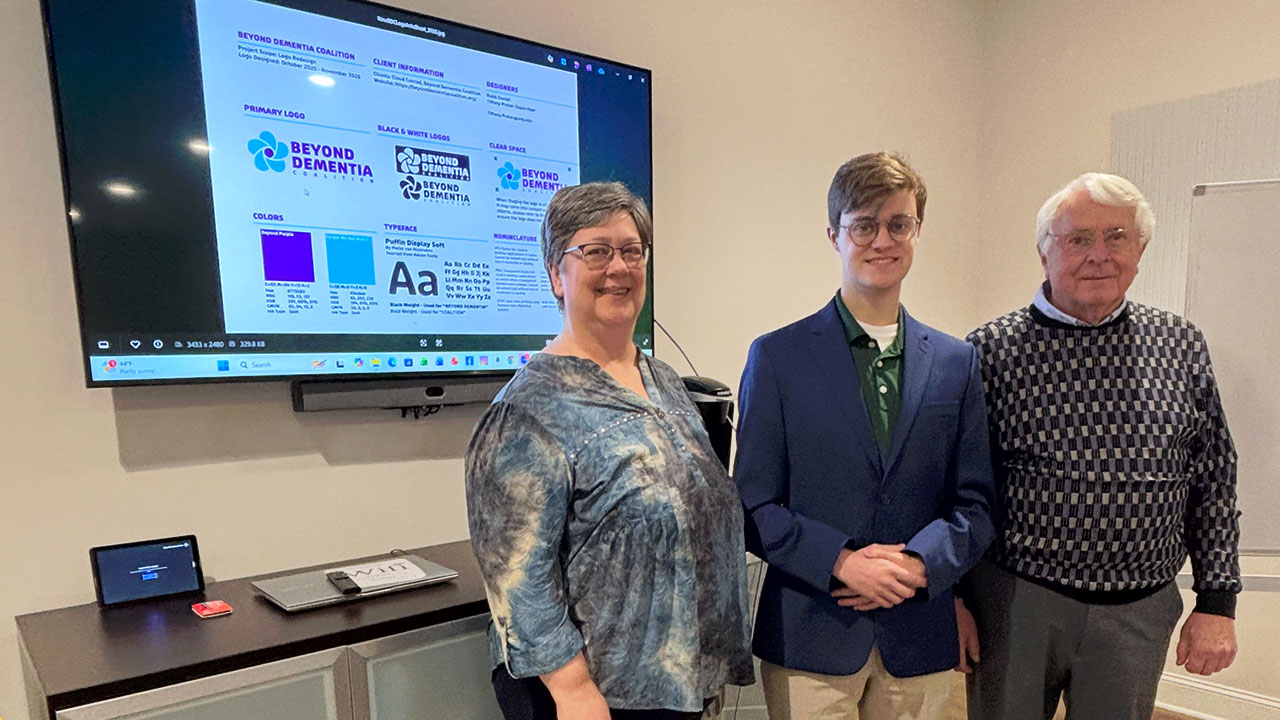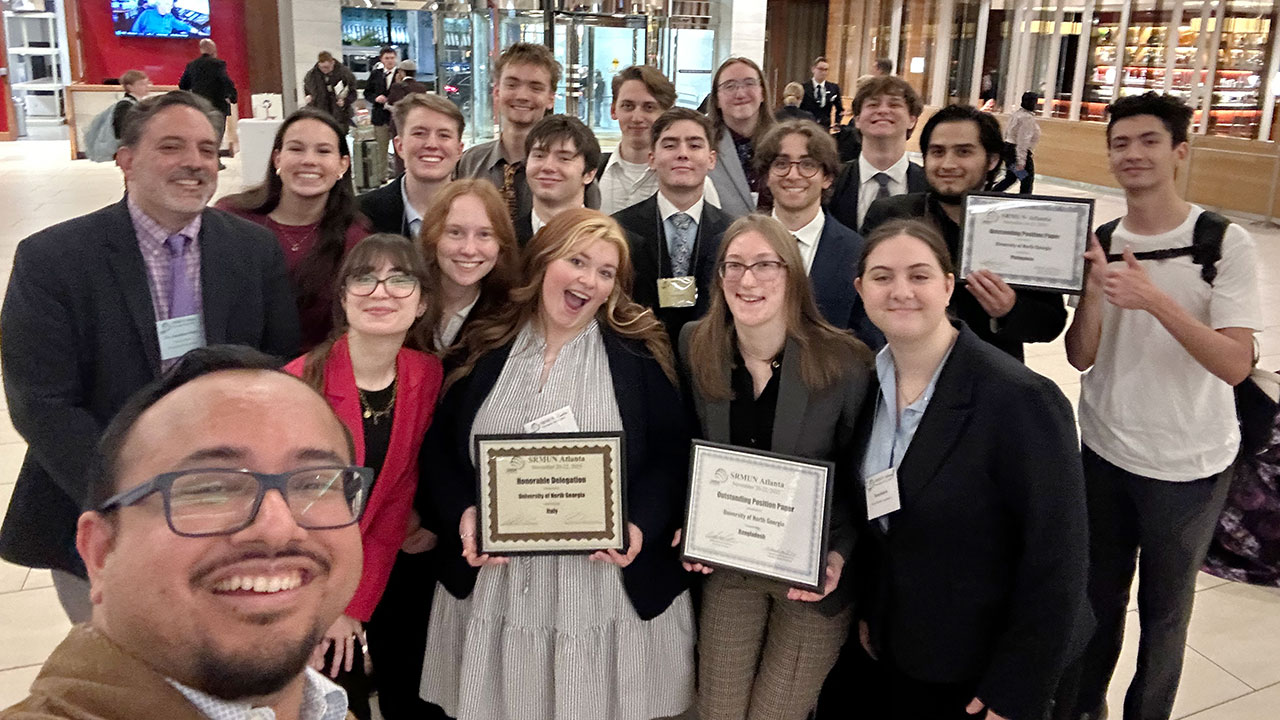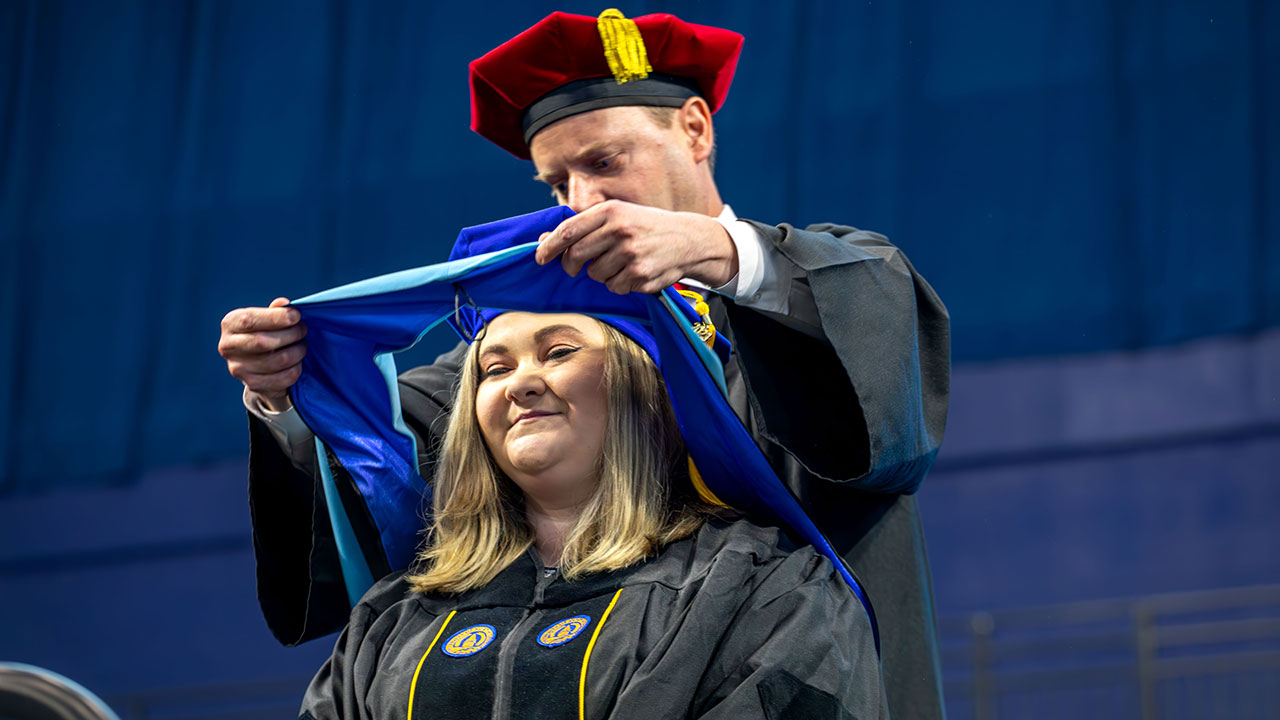Pi Kappa Phi fraternity celebrates 50 years

Common loyalty, personal responsibility, achievement, accountability, campus involvement, responsible citizenship, and lifelong commitment are the public values of Pi Kappa Phi fraternity. Each has served the Delta Beta chapter at the University of North Georgia (UNG) well. And it has a monumental milestone to prove it.
UNG's Pi Kappa Phi chapter celebrated its 50th anniversary on May 22. This golden anniversary is a major milestone for the social fraternity, which designates itself as the longest, continuous-running fraternity on UNG's Dahlonega Campus.
"This demonstrates the caliber of men we have as members, starting with our founders," said Justin Harper, public relations chairman and past president of UNG's Pi Kappa Phi chapter.
Founding members, alumni, and current Pi Kappa Phi brothers marked their anniversary with a virtual event. Harper explained the COVID-19 pandemic halted their plans for an in-person event.
"Many of our alumni are older, and it is not conducive for them to travel to the Dahlonega Campus at this time," said the senior pursuing a degree in political science and a member of the Corps of Cadets. "But we will have an in-person event next year."
Founding member Bill Pope, '72, was disappointed by the cancellation of an in-person anniversary event, but it doesn't diminish the significant milestone or his memory of helping charter a new fraternity.
"When we had our first meeting, we had 99 students there," said the 70-year-old from Fayetteville, North Carolina. "When we got to initiation, 57 of us joined."
McKenzie Duffessy, a rising sophomore pursuing a degree in marketing, enjoyed connecting with his active brothers and alumni. The 19-year-old from Newnan, Georgia, said the ability of the Pi Kapps to relate to each other appealed to him.
"Their connectivity was deep," said Duffessy, who was initiated in spring 2021. "In Pi Kapp, all of the brothers know at least three things about each other."
Aubrey Frazier, director of Fraternity and Sorority Life at UNG, said the Pi Kappa Phi fraternity has a stronghold on consistency.
"They have been an active chapter in good standing with the university since 1971," she said.
Frazier explained three national fraternities chartered their UNG chapters between 1879 and 1900, but World War I and the transition to a two-year college in 1932 hampered their ability to remain active.
"We lost all three national fraternities in 1933 because fraternities don't exist at two-year institutions," she said.
Many fraternities returned to UNG in the 1970s, including the Delta Beta chapter of Pi Kappa Phi. Since then, UNG has steadily increased its Greek-lettered organizations. In the past three years, six fraternities and sororities have chartered new chapters or re-established themselves at UNG. It's a trend Frazier plans to continue, with the intention to add four more groups next academic year.
For more information, visit the Fraternity and Sorority Life webpage.



